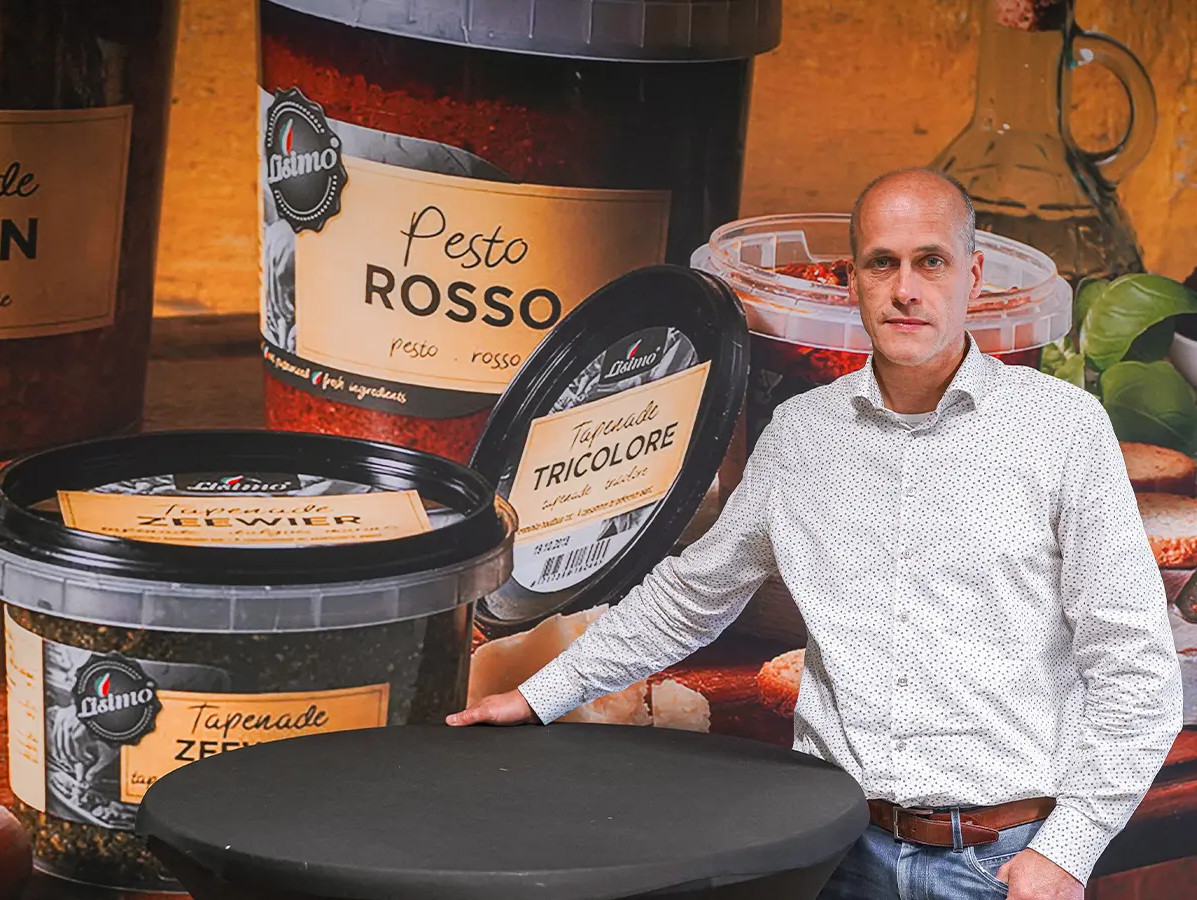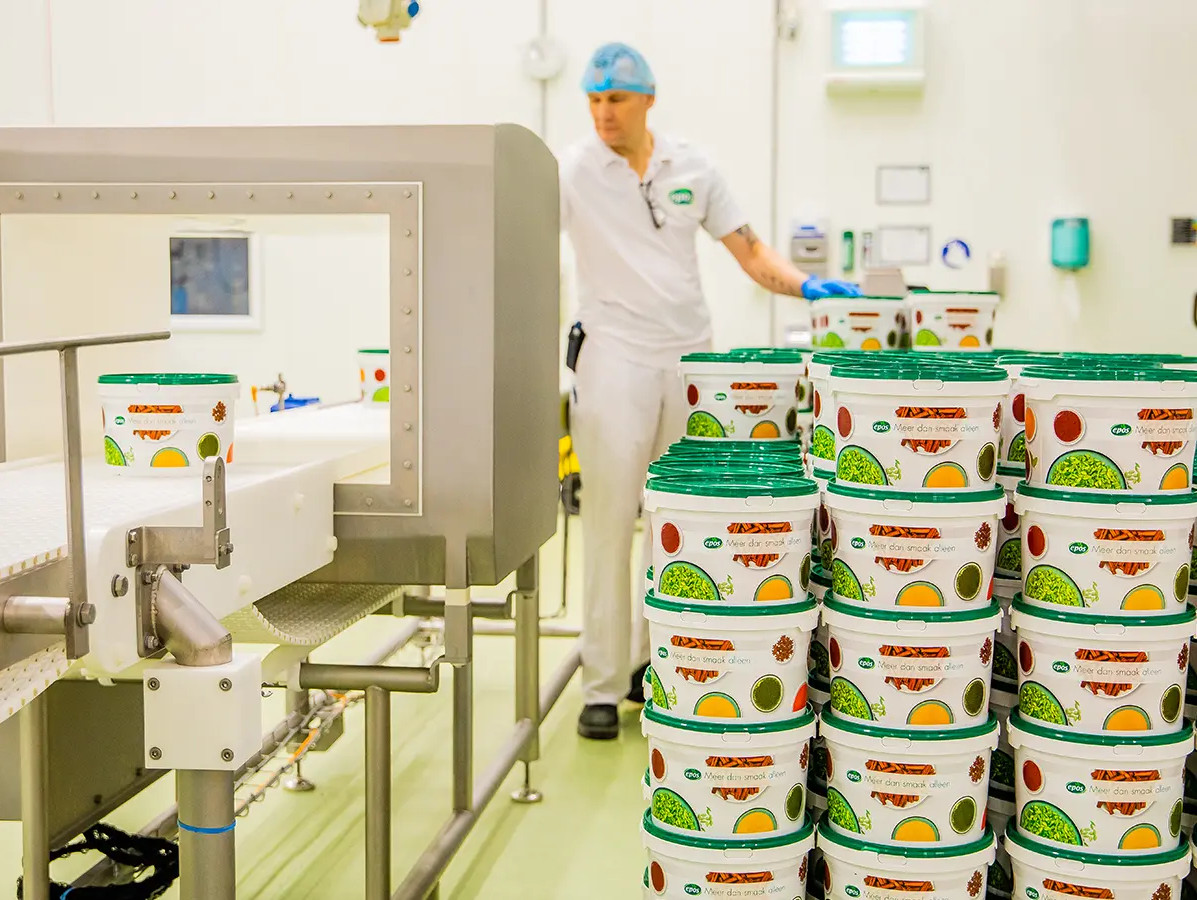
Bieze Food Group is the first company in the food industry to use the Smart Industry Assessment. IT Director Evert Nijkamp was closely involved in the process and shares his experiences. The company was guided by Sina Salim, Innovation Broker at RCT Gelderland.
“We wanted to gain more insight into our overall digital position,” says Evert about the motivation behind starting the assessment process. “As Bieze Food Group, we are undergoing a significant transition: from a network of companies active in the food sector to a platform that emphasizes chain collaboration. We manage the entire supply chain, from producer to professional user. Naturally, during such a process, the question arises: where do we stand in terms of digitalization, and where do we want to go? Alongside the Smart Industry Assessment, we also used the Digital Maturity Assessment from one of the European Digital Innovation Hubs (EDIH), which gave us a clear picture quickly.”
“A Digital Maturity Assessment measures the current level of digitalization,” explains Sina Salim. “With the results, a company can systematically improve its digital performance. The tool covers seven categories, including digital business strategy, human-centered digitalization, data management, and artificial intelligence. The result serves as a benchmark, comparing the company’s performance to that of industry peers.”
“A Smart Industry Assessment provides insight into where you stand regarding business competencies such as the business model, smart products, cybersecurity, production technology, and sustainability,” continues the innovation broker. “It also maps out what your ambitions for the future look like. You gain insight into the potential steps you can take to move your company forward. It’s a structured way to think about the future of your business.”

Evert Nijkamp
Completing the DMA questionnaire takes about an hour and is quite straightforward. “I think the results could have been more detailed,” notes Evert. “There could be more depth.” The assessment did not reveal outcomes that led to any adjustments or changes, confirming for him that Bieze Food Group is on the right track in terms of digitalization. “However, there are still opportunities when it comes to the use of artificial intelligence. We are exploring how we can apply AI within the companies. It’s challenging, both for us as IT professionals and for the companies themselves.”
The team involved in the Smart Industry Assessment consisted of seven directors from different disciplines within the company: commercial, production, finance, logistics, purchasing, HR, and IT. Each team member spent around six to eight hours on the assessment. “We deliberately chose not to include the CEO and CFO in the working group to keep the discussions as balanced as possible,” emphasizes Evert. “It was a good decision; it prevented them from having too much influence on the conversation.”

One of the enlightening findings from the assessment was the significant difference in approach and work methods between the operational side on the one hand and the commercial and logistics activities on the other. “This difference is mainly due to the fact that the commercial and logistics departments are much further along in their digitalization than the operational side. In the assessment, we therefore made a distinction so that we could gather relevant advice for both areas.” He points out that the assessment methodology is still heavily focused on manufacturing, especially when it comes to product development and (re)manufacturing. “It would be great if an assessment could be developed that is more tailored to the food industry,” he suggests.
“Looking at the results, it’s clear that Bieze Food Group has a high level of ambition,” Evert concludes. “We can now see that we are already quite advanced in some areas, particularly on the commercial and logistics sides, but we have also identified that there are still major steps to be taken on the operational side, in production.” Since the assessment was only recently completed, the IT director cannot yet comment much on its effects. However, he does share the initial areas of focus: “Like many other companies in the food sector, our production companies are still fairly traditional. Manually setting machines is not uncommon. While we already use data to some extent, there is much room for improvement. This will be a key focus for the coming period.”
Source: Vakblad Voedingsindustrie 2024